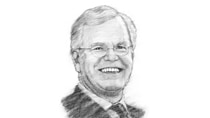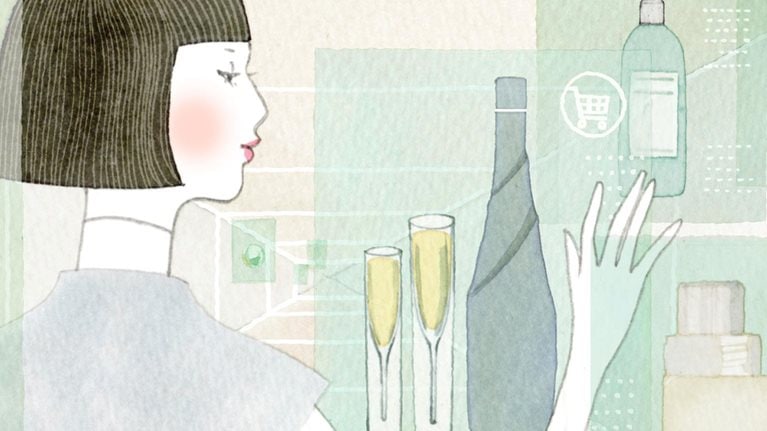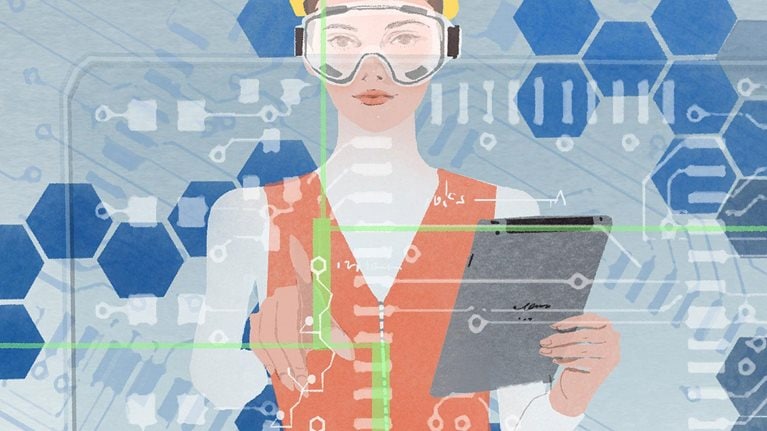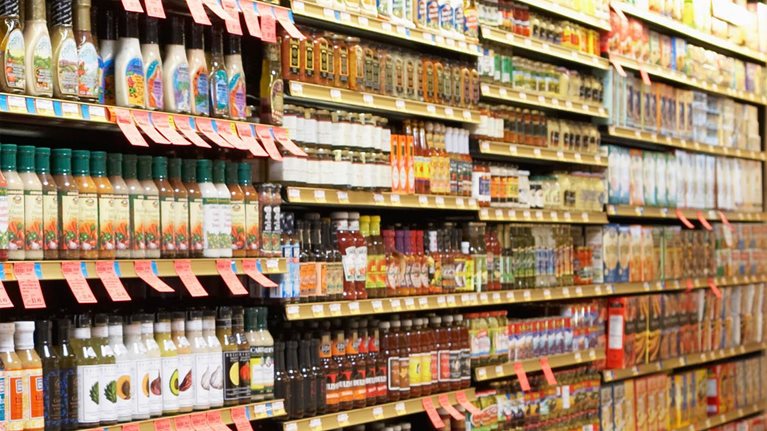To thrive in today’s consumer-goods industry, companies must excel on a number of fronts. For instance, they need to be innovators and stay ahead of trends. They have to learn how to harness the power of digital channels. And they must ensure that their business practices are socially and environmentally responsible. As CEO of Royal FrieslandCampina, one of the world’s largest dairy companies, Roelof Joosten faces these issues daily and is proud of what his company has achieved in these areas.
FrieslandCampina, with annual revenues exceeding €11 billion, sells dairy products—mainly milk and other dairy-based beverages, cheese, desserts, and infant formula—in more than 100 countries. Based in Amersfoort, the Netherlands, it is owned by a cooperative of 19,000-plus dairy farmers in the Netherlands, Germany, and Belgium. Since Joosten became CEO in June 2015, he has championed several ambitious initiatives. He recently spoke with McKinsey senior partners Dymfke Kuijpers and Marc van Rooijen about some of them.
McKinsey: You’ve now been in the CEO role for 16 months. Is there anything about the job that has surprised you?
Roelof Joosten: Yes—I was surprised at how energized the organization became after we refreshed our strategy. Last year, we gathered our top 70 executives in Hong Kong for a series of strategy sessions. I felt it was important for the organization to become a purpose-driven company, so we updated our 2020 strategy and came up with our purpose statement: “Nourishing by nature.” That exercise released so much energy and enthusiasm within the organization. I hadn’t foreseen that. I got—how do you call it?—goosebumps! That energy has enabled us to not only bring our purpose statement to life but also to keep it alive.
McKinsey: Your strategy has three pillars, namely “better nutrition for the world, a good living for our farmers, now and for generations to come.” What does each of those pillars mean, practically speaking?
Roelof Joosten: All three of them are essential to FrieslandCampina. “Better nutrition for the world” meant, first of all, establishing a nutrition policy. Any company can say they are in the business of nutrition, but what do they mean by that? You have to be specific. That’s what we did in 2015 by developing our global standards on nutrition. We now have a global set of nutritional criteria for our products.
Then we have to look at whether all our products are compliant with those standards. I’ll give you an example. In the Netherlands, one of our most popular products is custard, and recently the executives in charge of that product were thinking about changing the recipe to make it more cost effective. Milk is obviously a costly component of custard, so the plan was to reduce the milk solids in our custard. Well, if you keep going in that direction—if you’re always prioritizing costs—before you know it you’ve taken all the milk solids out of the custard, because it’s possible to make custard without any milk solids in it, to be honest. But when we came up with our purpose statement and our business code of conduct, they said to me, “That’s not the right thing to do.” So they changed the recipe—and actually put more milk solids in it. The product is now better tasting and it’s highly successful in the marketplace.
That’s a simple but telling example of what our purpose statement is for. It gives the organization guidance, like a compass. That’s actually what we call our business code of conduct: Compass. At the end of the day, you might not grow your market share, but you put 25 percent more milk solids in your custard. That’s an accomplishment. That’s “better nutrition for the world.”
Next is “a good living for our farmers”—that one is straightforward. Farmers produce our food but are often poorly rewarded because of their position in the value chain. And we’re not only talking about ensuring a good living for Dutch farmers. Through our Dairy Development Program, we also help governmental bodies in many countries in Asia, Africa, and Eastern Europe develop the capabilities to grow dairy production in their respective countries.
And finally, “now and for generations to come”—that one is partly about talent management for farmers. We can have all kinds of exciting developments as a company, but if there are no farmers, there is no food. So we need to make farming attractive to young people. “For generations to come” is also about sustainability, which is one of our most important areas of focus. We don’t treat it as a “Friday at five o’clock in the afternoon” type of initiative—sustainability is not an afterthought, but something that is really at the center of our thinking.
McKinsey: Indeed, one of your most intriguing initiatives has to do with sustainability: you are building the first dairy plant that runs partly on energy generated from cow manure. Please say more about that.
Roelof Joosten: I’ve found that if you want to get people talking about sustainability, manure is one of the best things to talk about, because everybody has an opinion on it. Farmers, governments, local authorities, regional authorities, the company, researchers—everybody has something to say about it. It’s amazing how many conversations I’ve had about cow manure.
One of FrieslandCampina’s sustainability commitments is to have climate-neutral growth by 2020. That means our CO2 levels in 2020 should be the same as 2010. That may not sound very challenging, but it is. We have to save something like 1,900 kilotons. And obviously we need the farmers to work with us on that, because 90 percent of our CO2 is generated at the farm. We’re going to pay the farmer €10 for every ton of CO2 he saves.
It’s going to require a change in philosophy and mind-set, to see manure not as a waste product but as a source of nutrients and energy. On October 4, we officially started operating our first manure digester1 in a farm in [the Dutch province of] Friesland. Our intention is to have digesters operating in 1,000 dairy farms by the year 2020, which together will represent a 350 kiloton reduction in greenhouse gases.
A year ago, people said to me, “That will not be possible. It will not work.” But now we’re doing it—the technical installations, the maintenance, the financing, the permits. We’re getting these manure digesters up and running. There are a lot of people standing on the sidelines or sitting on the reserve bench, and I’ve always said to them, “You never score a goal when you’re sitting on the reserve bench. Either play or shut up.”
McKinsey: Innovation is clearly a priority for you, not just with regard to sustainability. You’re partnering with start-ups to innovate in other areas as well, right?
Roelof Joosten: Yes, we’re working closely with a few start-up companies in areas that we think will affect our company in the near future. Together with these start-ups, we’re shaping a “milkubator”—cool, eh? It’s an incubator for innovation within our own company.
One of our partnerships is with GlycoSyn, a small company that is working on identifying and developing certain ingredients that will make infant formula respond better to the nutritional needs of infants. By working together, we hope to bring products with these ingredients to market in one or two years, whereas it might normally take us five to eight years if we did it alone.
McKinsey: You’re also experimenting with 3-D printing. Earlier you said, no food without farmers—but do you think 3-D printing might change that dynamic soon?
Roelof Joosten: We have no clue yet what 3-D printing will bring, and you probably will not see a [3-D-printed] product from us in the next five years or so. We think 3-D printing will be very important in medical nutrition—for example, developing good-tasting, easy-to-swallow foods for the elderly or for people in hospitals. But 3-D printing can also enhance or maybe even change our view on ingredients and enable us to tap into what I call lifestyle nutrition: creating customized, personalized food for not just elderly people but also athletes, people with dietary restrictions, people who lack certain nutritional products.
McKinsey: What about expanding geographically? Do you plan to expand your consumer business into the United States, for example?
Roelof Joosten: We still have so many opportunities in our current markets. The United States is the largest consumer market in the world, but do we really want to be in that market, with all its challenges? The same applies to Latin America—we could come up with business plans that would make it an attractive market for us, but we’d have to take resources away from opportunities we see in our current markets.
Our priority is to do even better in the areas where we already play. As a company, you need to keep your focus on what you’re good at, and don’t get too greedy. You’ll be tempted by many opportunities; you have to choose the right ones. You can’t do everything.
McKinsey: You probably see many opportunities in Asia, or even just within China. I know you’re especially passionate about China. What do you think companies can learn from that market?
Roelof Joosten: I’m fascinated by China. I’ve been there quite often, so I’ve gotten a lot of exposure to the phenomenal change and the speed of change. It’s going even faster than people think. There’s no time to breathe, almost. Things change so fast—so if you’re successful today, you might not be successful tomorrow. In China, you have to expect the unexpected.
I was there two weeks ago, and I visited a shopping mall. It was built probably only two or three years ago, and it was amazing to see how modern it looked. But there was no one there. It was empty. Hardly anybody shops in a shopping mall anymore in China; they shop online. And they learn from their friends how to shop, where to shop, what they should look for, what the new trends are. And how do they learn these things? Through communities like WeChat. If your company is not active in these communities, that’s a warning sign. That’s why we’ve plugged into these types of communities, like [the Chinese parenting portal] Babytree.
Our experience in China has helped us everywhere else. Our organization is slowly but steadily shifting funds away from the classic advertising and promotion (A&P) channels and into digital, because we can communicate far more effectively with consumers through digital channels. In some ways, traditional A&P is like spraying your messages around with a water hose and hoping that you’ll wet people enough so that they go and buy your products.
McKinsey: What digital-marketing initiatives have worked well for you?
Roelof Joosten: Our digital loyalty program in the Netherlands, called Eurosparen, already has more than a million members. We know what consumers are buying and what they want, because we’re in communication with them all the time online and through the Eurosparen app.
Eurosparen is obviously much more advanced from an infrastructure perspective, but our digital efforts in other countries are also moving fast. We’re now investing in mobile and digital marketing in other countries like Egypt, Russia, Indonesia, Saudi Arabia, Myanmar, and Vietnam. The dairy market in Vietnam is difficult, but we’re growing there, largely because we’ve partnered with Facebook, YouTube, and Google to deliver personalized messages to consumers.

Western Europe’s consumer-goods industry in 2030
One challenge is that you need a different breed of people to do digital marketing well. The whole contingent of commercial people today have different skills from the people you need for tomorrow; there are only a few who can make the transition. Fortunately for us, the talent pool in the Netherlands is not too bad. In Amsterdam, for instance, there are people who are really into gaming who might make good FrieslandCampina employees in the future.
McKinsey: I imagine talent is a perennial issue. And not just digital talent, but managerial and executive talent as well.
Roelof Joosten: Talent management is critical. In the past six months especially, I’ve been focusing on defining a career path for our future leaders and young management trainees. About a year ago, we had losses in that area that we really regret—several high-potential employees left our company. That was a worrying sign for me. So we pay close attention to a few talent-management metrics: we look at coverage; we look at whether we’re doing enough to groom future leaders and young talent. We now spend a lot more time in our executive board meetings talking about talent management. I find it exciting—a blessing, really—to be surrounded by very talented people, many of whom are much more talented than I am, I think. They challenge me, rather than the other way around.
I believe we’ve become more competitive from a talent perspective. More people want to join the organization. And I think that’s partly because we’ve struck a chord among millennials in particular. FrieslandCampina is not a typical consumer-goods company. It has that duality of the consumer business and the ingredients business on one hand, and the commodity element on the other hand. So we as a company are thinking through the entire milk value chain. At our company, you get to know the farmers, and you can look them in the eyes and talk to them about their livelihoods. I think millennials in particular are inspired by that—they want to relate to real people, rather than just unknown shareholders.
McKinsey: That’s an interesting observation. Your structure gives you some advantages, but I’m sure there are also drawbacks. What do you see as the toughest challenge for FrieslandCampina?
Roelof Joosten: Processing 12 billion liters of milk and selling it. Because we’re owned by a cooperative of farmers, we have to process all the milk the farmers produce. In the first half of this year, we processed 12 percent more milk than we did in the first half of 2015. We had to sell most of the additional volume at a big loss because the worldwide dairy market is growing at only about 2 percent. Conclusion: we’re throwing money away. So we’re working on an instrument, which hopefully our member farmers will approve by the end of this year, that will allow us to better adapt supply to demand. Most other companies can shut off supply; we can’t. It’s a rare kind of organization. But that also makes it fun.
McKinsey: It’s good to hear you’re having fun. Do you think you’ve changed since you became CEO?
Roelof Joosten: I don’t feel that I’ve changed that much myself, but the behavior of those around me changed when I became CEO. It seemed like they started seeing me through different eyes. Other CEOs warned me that this would happen—that some people would behave differently. So I learned that it’s important to have people around you who will keep you honest and who will always be honest with you. For me, there are individuals in the company who will still be up-front with me. Also, my family watches me carefully. They always warn me not to “walk next to your shoes,” as they say in Dutch—they tell me not to become arrogant.
McKinsey: Thank you very much for your time today. One final question: What’s the best advice you’ve ever received?
Roelof Joosten: In the northern part of the Netherlands, they have a saying that goes something like this: “Whatever you do, whatever you are, it could always be worse.” I think that’s true. Another piece of advice that I live by is, “Never forget where you came from.”
And, as far as FrieslandCampina is concerned, I try to remember that I’m only a voorbijganger—a passerby, in a sense. FrieslandCampina has developed over the past 140 years, and many people worked passionately to get it to where it is now. I’m here to lead it today, and then somebody else will come after me. So I better take good care of it for now.



